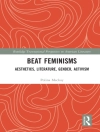The Essential Pauline E. Hopkins (2021) compiles several iconic works of fiction by a pioneering figure in American literature. Contending Forces was Hopkins’ first major publication as a leading African American author of the early twentieth century. Originally published in The Colored American Magazine, America’s first monthly periodical covering African American arts and culture, Winona: A Tale of Negro Life in the South and Southwest is a groundbreaking novel that addresses themes of race and colonization from the perspective of a young girl of mixed descent. Hagar’s Daughter: A Story of Southern Caste Prejudice is thought to be the first detective novel written by an African American author. Also included in this collection is “Talma Gordon, ” an influential short story, and Of One Blood, Hopkins’ final novel.
Winona: A Tale of Negro Life in the South and Southwest opens on an island in the middle of Lake Erie, where White Eagle—recently displaced after the dissolution of the Buffalo Creek reservation—has built a home for himself and his African American wife. Adopting her son Judah, White Eagle establishes a life for his family apart from the prejudices and violence of American life. Their daughter Winona grows to be proud of her rich cultural heritage. Set just before the outbreak of the American Civil War, Hagar’s Daughter: A Story of Southern Caste Prejudice takes place on the outskirts of Baltimore. When Hagar Sargeant returns home after four years of study at a seminary in the North, she meets Ellis Enson, an older gentleman and self-made man who resides at the stately Enson Hall. After a brief courtship, the pair are engaged to be married. As the wedding approaches, Hagar’s mother dies unexpectedly, leaving Hagar the family estate. When a man from the deep south arrives claiming the young woman was born a slave, their lives are changed forever. Contending Forces is the story of Charles Montfort, a planter from Bermuda who moves with his family and slaves to North Carolina. There, he plans to free his slaves, drawing condemnation from his neighbors and risking violent retaliation. When a rumor spreads regarding his wife’s ancestry, Montfort suspects Anson Pollack, a former friend, of planning to dispossess him. In these wide-ranging tales of race, class, and social convention, Hopkins proves herself as a true pioneer of American literature, a woman whose talent and principles afforded her the vision necessary for illuminating the injustices of life in a nation founded on slavery and genocide.
This edition of The Essential Pauline E. Hopkins is a classic work of African American literature reimagined for modern readers.
Since our inception in 2020, Mint Editions has kept sustainability and innovation at the forefront of our mission. Each and every Mint Edition title gets a fresh, professionally typeset manuscript and a dazzling new cover, all while maintaining the integrity of the original book.
With thousands of titles in our collection, we aim to spotlight diverse public domain works to help them find modern audiences. Mint Editions celebrates a breadth of literary works, curated from both canonical and overlooked classics from writers around the globe.
Über den Autor
Pauline Elizabeth Hopkins (1859-1930) was an African American novelist, playwright, and historian. Born in Portland, Maine, Hopkins was raised in Boston by her mother and adopted father. Supported in her academic pursuits from a young age, Hopkins excelled at Girls High School, where she won a local competition for her essay on the raising of children. In 1877, she began her career as a dramatist with a production in Saratoga, which encouraged her to write a musical entitled Slaves’ Escape; or, The Underground Railroad (1880). In 1900, she published “Talma Gordon, ” now considered the first mystery story written by an African American author. Having established herself as a professional writer, she published three serial novels in the periodical The Colored American Magazine, including Hagar’s Daughter: A Story of Southern Caste Prejudice (1901-1902) and Winona: A Tale of Negro Life in the South and Southwest (1902-1903). Often compared to her contemporaries Charles Chestnutt and Paul Laurence Dunbar, Hopkins made a name for herself as a successful and ambitious author who advocated for the rights of African Americans at a time of intense violence and widespread oppression.












